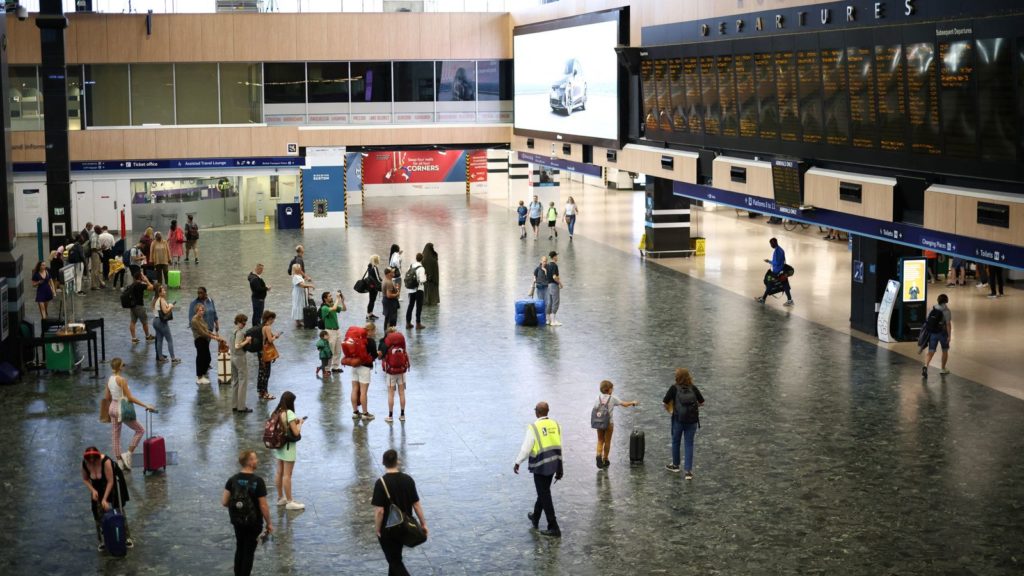Worst performing rail operator revealed as reliability hits new low | UK News

Train reliability in Britain has dipped to the worst level on record following a month of disruption caused by strikes.
Britain’s train cancellations score in the 12 months leading to 20 August was 3.7%, Office of Rail and Road data shows.
It is the worst score since records began in 2015.
Cancellations scores reflect the percentage of services that are either fully or part-cancelled.
A spokesman for industry body the Rail Delivery Group (RDG) blamed “unnecessary and damaging” strikes for the poor performance levels, and apologised to passengers who had experienced disruption.
Strikes arose over disputes in jobs, pay, and conditions for workers, with more to come.
Drivers’ union Aslef confirmed that its members at 12 companies will stage new strikes on October 1 and 5.
The strikes look set to impact people travelling to both the London Marathon and the Conservative Party conference in Birmingham.
Mick Whelan, Aslef’s general secretary, said the action was a “last resort” as train drivers were being asked to take a “real terms pay cut” due to soaring inflation.
The RDG spokesman said unions were “opposing the very reforms that will improve reliability and punctuality”.
Worst performing operators revealed
The cancellations score for all rail services in the last available data for a four-week period from 24 July to 20 August was 4.9%.
Avanti West Coast was the worst individual operator between those dates, with the highest score of 14.9%.
London North Eastern Railway scored 11%, East Midlands Railways had 5.5%, and Grand Central got 12%.
Govia Thameslink Railway recorded its second-worst cancellations score of 11.1%, with Southern, Thameslink, Great Northern and Gatwick Express services all under its remit.
Avanti West Coast is facing calls for its services to be taken into public ownership after the operator slashed its timetable to reduce short-notice cancellations.
A company spokesman blamed a shortage of staff – “particularly drivers” – who were willing to work overtime, and apologised for the “enormous frustration and inconvenience”.
“As a result, we reduced our timetable to ensure a more reliable service,” they said.
“This was not a decision we took lightly, and we are now in the process of rebuilding the timetable in a sustainable and robust way without the reliance on overtime.”
Trains to and from London have also been disrupted for a third consecutive day on Wednesday due to damaged overhead electric wires.
Services at King’s Cross, Paddington and Moorgate have been delayed due to issues at Stevenage and Hayes & Harlington.

Recent Comments